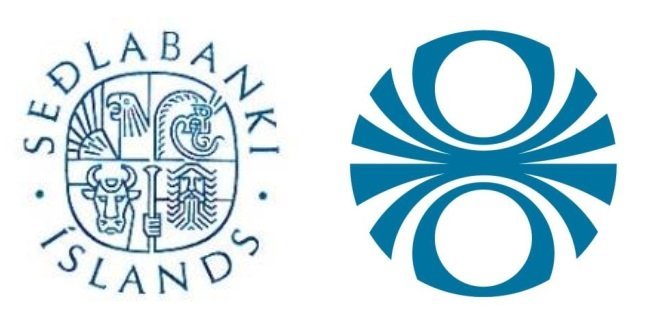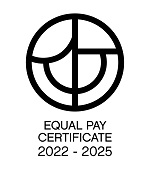Previously unpublished emails reveal close consultation between the Central Bank and RÚV in the run-up to a search of premises
The Central Bank of Iceland has given Samherji access to all email communications between the then Director-General of the Central Bank of Iceland's Capital Controls Surveillance Unit and a reporter at The Icelandic National Broadcasting Service (RÚV) in the run-up to a search of premises at Samherji's offices on March 27, 2012. Samherji has now published these emails for the first time.
- The reporter and the former director of the Capital Controls Surveillance Unit exchanged twenty emails over a five-week period before a search of premises was conducted at Samherji's offices.
- The Central Bank gave a false statement to the Reykjavik District Court in 2015 that no communication had taken place with the media in the run-up to the raid.
- RÚV's primary source withdrew accusations towards Samherji three weeks before the raid and a TV-program where accusations towards Samherji aired for the first time. Nevertheless, both the Central Bank and RÚV made assertions about abnormally low prices and under-pricing.
- The Director-General of RÚV refused Samherji access to the emails with reference to legal provisions for the protection of journalist's sources.
- The Central Bank hinted that the extent of the possible breach of the capital controls amounted to billions ISK when in fact it concerned a transaction of ISK 25 million.
The Central Bank decided to give Samherji access to the emails in question on December 4. The correspondence contains twenty emails between Ingibjörg Guðbjartsdóttir, the then director of the Capital Controls Surveillance Unit and the journalist Helgi Seljan, over five weeks, from February 20 to March 26, 2012, in the run-up to a search of premises at Samherji's offices and coverage in the TV-program Kastljós on RÚV on March 27, 2012. The communication reveals abnormal and possible criminal working methods of the employees of RÚV and the Central Bank.
The emails reveal that on February 20, 2012, Helgi Seljan informed the Central Bank about allegations of Samherji's alleged abnormally low pricing, which, according to RÚV's reporters on March 27, 2012, triggered an investigation into Samherji's affairs. Helgi Seljan kept the director of the Capital Controls Surveillance Unit fully informed about the progress of his own investigation at RÚV. Helgi Seljan disclosed to the director that his source in the Appellate Committee for Fishermen had acknowledged, after being repeatedly asked in an interview, that Samherji had sold redfish at a discount. Two days later, on March 4, 2012, Helgi informed the director that the source had requested that the interview with him be re-recorded as he had received information about Samherji's prices which revealed that there was no under-pricing. It seems that Helgi Seljan and the former director of the Capital Controls Surveillance Unit, who led the investigation into Samherji, did not care about this fact. It is worth mentioning that the source did not mention a single word about redfish trading during his interview in the said episode of Kastljós.

Despite this and the fact that no documents or data indicated that abnormal pricing took place, the Central Bank conducted a search of premises at Samherji's offices on March 27, 2012, with reference to this information, which had been corrected three weeks earlier. The same evening, an episode of Kastljós hosted by Helgi Seljan, aired on RÚV, where it was claimed that Samherji had sold redfish from Iceland at a discount. The statement was said to be based on a "report" from the Fresh Fish Price Directorate, a government body, which later revealed that the document was an unsigned, unconfirmed memo that the journalist had taken out of context. The journalist read and published a fraction of an article from the document, thereby completely changing its substance and content. Nothing in the said memo supports allegations of selling redfish at a discount, in fact on the contrary. However, this information was not revealed until August this year when the memo was discovered after an internal review at the Fresh Fish Price Directorate.
The aforementioned email correspondence also indicates that the reporter knew what was about to happen, as he asked the director of the Capital Controls Surveillance Unit in an email on March 9 2012, if there were any "news of what we were talking about." Considering the fact that the reporter sent the director a draft of his story about the raid, the day before it was carried out, leads to the conclusions that there is an overwhelming probability that the former director is the source behind a story on the search of premises. When RÚV's director-general refused Samherji access to these emails in 2020, he relied on legal provisions for the protection of journalists' sources.
The Central Bank's request to the District Court for a search on Samherji's premises was based entirely on accusations that the Bank's management knew were unfounded. The Central Bank's calculations and specific accusations will be explained in further detail later, but it is worth mentioning here that the focus of the Bank's reasoning for the search was based on a tip from the journalist Helgi Seljan. As stated above, the tip was groundless after the journalist's source had retracted his accusations and the director of the Capital Controls Surveillance Unit had been notified of this. Nevertheless, the original accusation found its way to the district court. In the claim, the director, who signed it alongside the deputy governor of the Central Bank, apparently deliberately created the wrong impression on the judge that the extent of the alleged violation amounted to billions of ISK. The fact is, on the other hand, that the volume of sales of redfish from Samherji's own vessels to related parties, during the three-month period specified in the claim, amounted to 120 tonnes out of a total of 1,500 tonnes of redfish that vessels landed. Samherji exported 25,000 tonnes of seafood during the period for about ISK 11 billion, while the value of the exported redfish to related parties amounted to ISK 25 million, or 0.2% of the export value for the period. To top this nonsense off, the calculation of prices was wrong. This has been confirmed by the Icelandic courts and by all authorities that subsequently examined the case, including the Central Bank in 2016.
It is therefore clear that the former director of the Capital Controls Surveillance Unit, who signed a request for a search of Samherji's offices and later complaints against Samherji and certain individuals, was aware that the allegations against the company were based on misrepresentations. RÚV took an active part in the attack on Samherji in 2012 and has since then done everything in its power to prevent Samherji from receiving the documents that have now come to light for the first time. Similarly, the Central Bank has, until now, repeatedly prevented Samherji access to the emails. The Central Bank also gave a false account of the communication with RÚV before the Reykjavík District Court in 2015. As a result, Samherji did not get access to the emails in question until five years later.
"These emails confirm what we have long suspected and previously stated. The Central Bank's management at the time withheld information from us and did not hesitate to give a false account of the facts before a court of law. We are now publishing these emails so people can see for themselves that the communication between RÚV and the Central Bank in the run-up to the search of premises at Samherji's offices was very anomalous. These institutions conspired to attack Samherji based on accusations that the key staff of these institutions knew were groundless, which is, of course, a grave matter," says Thorsteinn Már Baldvinsson, CEO of Samherji.
Due to statements made by the management of RÚV, Samherji has decided to publish the email correspondence in question, and the emails are available in chronological order here (in Icelandic). The police is currently investigating the communication between RÚV and the Central Bank due to Samherji's complaint in the spring of 2019 and after the Prime Minister of Iceland referred the matter to the police by a letter on September 11 2019.
For further information, contact:
Margrét Ólafsdóttir
margret@samherji.is


